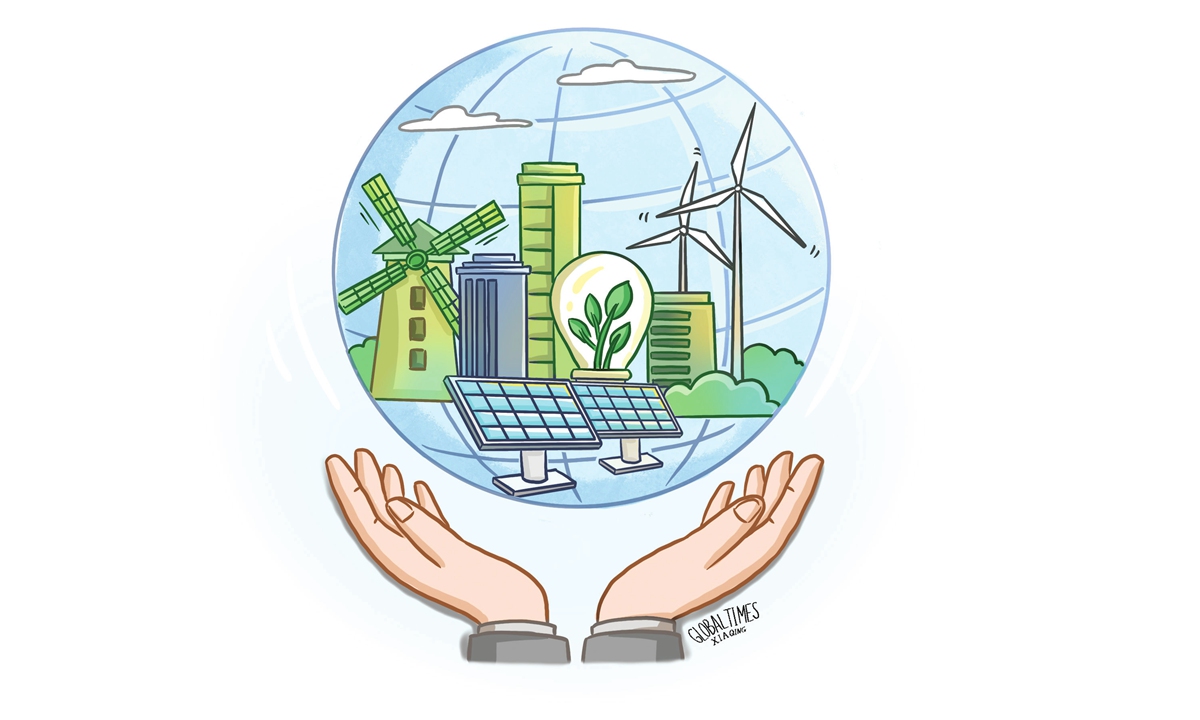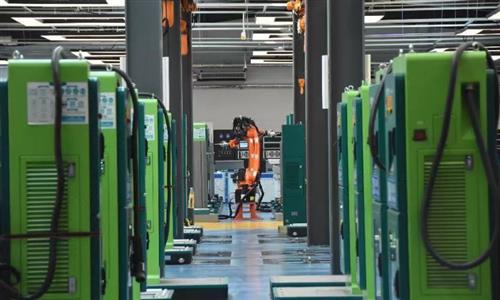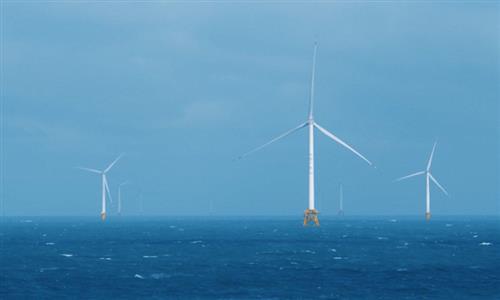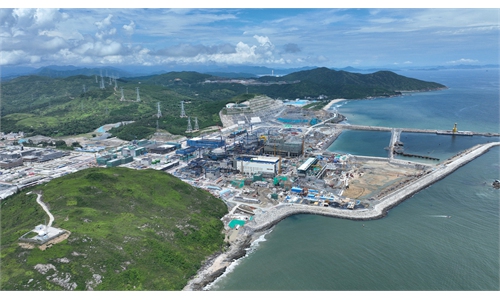China a key player in global climate change governance with green and low-carbon efforts

Illustration: Xia Qing/GT
The expression "green and low-carbon development" has been mentioned frequently at China's two sessions this year. As Chinese Premier Li Qiang pointed out in the government work report, the country will enhance ecological conservation and promote green and low-carbon development, including taking comprehensive steps to improve the environment, and boosting the green and low-carbon economy.
Some people outside of China are very concerned about the country's environmental protection endeavors. They are also curious about in what way Chinese modernization will be achieved amid increasingly severe global climate challenges, what China has done in the shift to green and low-carbon development, and what related proposals and measures China has made in international cooperation. In order to find answers to these questions, one needs to understand China's proposals and practices in addressing climate change.
Chinese modernization provides a feasible solution for global climate change
How to handle the relationship between economic development and environmental protection has been a global challenge since the beginning of industrial civilization. Western modernization has gone through a process from environmental destruction to restoration. Driven by materialism, some Western countries have yet to change their models in which natural resources are excessively consumed. The carbon dioxide emissions per capita in the US are as high as over 15 metric tons, while China's figure is around 7. Given that most countries are still in the process of modernization, the current numbers will soon exceed the planet's ecological carrying capacity if they follow the Western model. Therefore, it is necessary to find a new path for mankind to move toward modernization while achieving harmonious coexistence between man and nature on a global scale.
Chinese modernization highlights the need to create a community of life for man and nature and adheres to the principle that lucid waters and lush mountains are invaluable assets. It also integrates economic development with environmental protection. It transcends the West's view of nature during Western modernization, providing a more feasible solution for human beings to address the environmental problems brought by industrial civilization.
China is a proactive force in promoting green and low-carbon development
Unlike some developed countries that make empty promises on climate change governance, China has consistently kept its promise and achieved tangible results in the construction of ecological civilization.
The country vigorously develops renewable energy, and is home to more than half of the world's electric vehicles on roads, making a significant contribution to global climate governance. Additionally, China is working toward peaking carbon dioxide emissions before 2030 and achieving carbon neutrality before 2060 in a transition period of only 30 years, which is shorter than the 40 to 70 years for some developed countries. These efforts have led to a transformative and comprehensive change in China's ecological environment protection.
China is a participant, contributor and leader in global ecological civilization construction
China is not only an advocate of international cooperation in addressing climate change, but also an active participant. It is one of the first signatories to the United Nations Framework Convention on Climate Change and has made significant contributions to concluding and implementing the Paris Agreement. Compared to the US' volatile attitude, China has maintained a consistent and resolute stance in international cooperation to handle climate change, playing an important role in promoting global climate change governance.
China also actively promotes South-South cooperation on climate change, supporting other developing countries to improve their capacity to address this issue. It has signed 48 South-South MOUs on climate change with dozens of developing countries, built four demonstration zones on low-carbon development, carried out 75 projects on the mitigation and adaptation of climate change, and brought the benefit of green and low-carbon development to more countries.
However, a strange phenomenon can be observed in global climate governance: Some countries talk about reducing carbon emissions while practicing green protectionism. For example, China's electric vehicle (EV) industry has developed rapidly in recent years and gained popularity in the global market. Yet, EVs from China have become the target of an anti-subsidy investigation from the European Union (EU).
The rapid growth of China's green industries is based on continuous technological innovation and a complete industrial chain. The country has gained a legitimate advantage through fair competition, which plays a positive role in global climate change governance and the EU's green transition. Building "green barriers" cannot solve the problem of the EU's lack of momentum in the development of its green industries. Instead, to achieve mutual benefit and win-win results for both China and the EU, strengthening the mutual advantages between the two sides and making joint efforts to boost green industries and clean technologies is the right choice.
Overall, China has become an important promoter of global energy transition and climate change mitigation through unremitting efforts. Looking ahead, it will continue to strengthen the construction of ecological civilization, promote green and low-carbon development, participate in global climate and environmental governance, and work with all countries for a clean and beautiful world for future generations.
The author is a former Chinese ambassador to Luxembourg and Madagascar. opinion@globaltimes.com.cn



